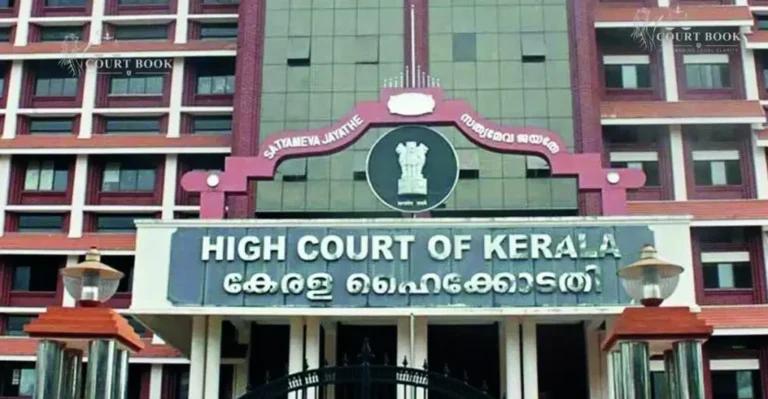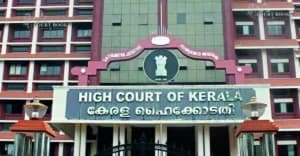In a landmark decision, the Kerala High Court has struck down the retrospective levy of Goods and Services Tax (GST) on supplies made by clubs and associations to their members, terming the provisions of the CGST Act, 2017 and the Kerala GST Act as unconstitutional.
Background of the Case
The controversy began with the 2021 amendment to the CGST Act, where the definition of "supply" under Section 7(1)(aa) was expanded. This change included transactions between a person (other than an individual) and its members, for any form of payment, and was applied retrospectively from July 1, 2017.
This move received major opposition as it contradicted the principle of mutuality, which assumes that a person cannot make a taxable supply to themselves—essentially the legal backbone of many clubs and associations.
A division bench comprising Justice Dr. Jayasankaran Nambiar and Justice S. Easwaran ruled in favor of the Indian Medical Association (IMA), which had filed a writ appeal against GST recovery on services provided to its members.
"Accordingly the provisions of Section 2(17)(e) and Section 7(1)(aa) and the Explanation thereto of the CGST Act, 2017 and the KGST Act are declared as unconstitutional and void being ultra vires the provisions of Article 246A read with Article 366(12A) and Article 265 of the Constitution of India."
The bench held that these provisions went beyond the constitutional definition of “supply” under Article 246A, which does not authorize taxation on mutual transactions within the same entity.
The court expressed strong disapproval of imposing taxes retrospectively without notice:
“The insertion of a statutory provision that alters the basis of indirect taxation with retrospective effect... militates against the concept of Rule of Law.”
The judges stated that such retrospective amendments deny service providers the opportunity to recover taxes from recipients and hence violate fairness and due process.
The Court pointed out that the legislature cannot assign a new meaning to a term already defined in the Constitution:
“A legislative body, that derives its competence to enact a Statute from the Constitution, cannot give to the word/concept a meaning that goes against the meaning assigned to the same word/concept by the Supreme Court.”
The word “supply”, as used in Article 246A, does not extend to deemed supplies, unless expressly stated in the Constitution or interpreted by the Supreme Court.
The Court reinforced the principle of mutuality, supported earlier by the Calcutta Club judgment (2019) and Ranchi Chief Commissioner of Central Excise & Service Tax (2012).
“As long as Calcutta Club remains a binding precedent... the amendments to the CGST/SGST Act should fail.”
Following the Constitution (46th Amendment) Act, 1982, only “deemed sales” of goods by associations to their members could be taxed under Article 366(29A). However, there’s no equivalent provision for “deemed services”, making the 2021 GST amendment constitutionally unsound.
The Court held that no law or amendment can override the principle of mutuality unless the Constitution itself is amended to specifically allow for such a change.
The IMA had challenged a demand for GST on services offered to its members. The association argued that these were internal transactions and not liable for GST due to the mutuality principle. Initially, a single judge upheld the amendment but denied retrospective effect, prompting appeals from both sides—IMA, the Union Government, and the State.
The Kerala High Court’s ruling quashes the retrospective levy of GST on club/association services to members, reaffirming that such transactions are not subject to tax under the current constitutional framework.
While not directly related, the Rajasthan High Court recently took a unique approach in another case. Justice Anoop Kumar Dhand allowed a petitioner to re-open his labor dispute claim—on one powerful condition: he must plant 21 trees in a public space and take care of them.
“Planting trees as directed above, is one such initiative which this Court considers to be appropriate, as trees… will continuously and silently offer numerous benefits to the city and the surrounding community.”
The Court even required the petitioner to submit photographic proof quarterly, holding a newspaper to timestamp the photos. The idea? Combine justice with environmental responsibility.
This Kerala High Court judgment is a huge relief for clubs, associations, and professionals across India. It not only cancels the retrospective GST burden but also upholds the mutuality principle, strengthening constitutional safeguards against arbitrary taxation.
By striking down the GST amendments, the Court has reasserted that constitutional terms cannot be bent by mere legislative amendments, ensuring that taxation powers remain within clear legal boundaries.
“The State is obliged to offer justification for all its actions that touch upon the constitutional rights… We do not find any such justification here.”
Appearances | For IMA : Senior Advocate Arvind P Datar, Advs George Varghese (Perumpallikuttiyil), Manu Srinath, Nimesh Thomas, Lijin Thampy
For Union : ARL Sundaresan, Addl Solicitor General
For State : Mohammed Rafique, Special Govt Pleader (Taxes)
Case : Indian Medical Association Kerala Branch vs Union of India















